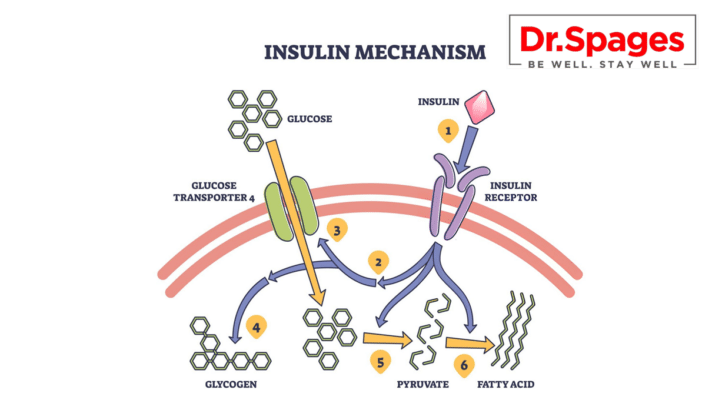Stress, Sleep, and Blood Sugar: Balancing the Diabetes Equation

Stress, Sleep, and Blood Sugar: Balancing the Diabetes Equation
Living with diabetes necessitates a multifaceted approach that goes beyond simply controlling blood sugar levels with medicine and nutrition. Stress and sleep are important factors in blood sugar control and overall diabetes treatment. Chronic stress and insufficient sleep can wreak havoc on the delicate balance of blood sugar management, making it more difficult to reach optimal health. In this post, we will look at the complex relationship between stress, sleep, and blood sugar, as well as practical ways for striking a balance and empowering people with diabetes to take charge of their health.
Understanding the Impact of Stress on Blood Sugar:
Blood sugar levels can be significantly affected by stress. When we are stressed, whether physically or emotionally, our bodies produce stress chemicals like cortisol and adrenaline. These hormones cause the release of glucose into the bloodstream, resulting in an increase in energy. Individuals with diabetes may experience higher blood sugar levels as a result of this. Furthermore, persistent stress can add to insulin resistance, making it more difficult for cells to adequately utilize glucose. Over time, this can lead to poor blood sugar control and an increased risk of long-term diabetic problems.
The Importance of Quality Sleep in Blood Sugar Control:
Quality sleep plays a vital role in blood sugar regulation and overall health. Lack of sleep or poor sleep quality can disrupt the delicate balance of hormones involved in blood sugar control. Studies have shown that sleep deprivation can lead to insulin resistance, impairing the body’s ability to effectively utilize insulin to transport glucose into the cells. Additionally, inadequate sleep affects hunger hormones, such as ghrelin and leptin, leading to increased appetite and potential overeating. These factors can contribute to elevated blood sugar levels and make diabetes management more challenging.
Strategies for Managing Stress and Promoting Quality Sleep:
- Stress Management Techniques:
- Engage in stress-reducing activities such as deep breathing exercises, or yoga.
- Prioritize self-care and allocate time for activities that bring joy and relaxation.
- Seek support from friends, family, or professionals to help cope with stress.
- Establish a Healthy Sleep Routine:
- Set a consistent sleep schedule by going to bed and waking up at the same time each day, even on weekends.
- Create a soothing bedtime routine, such as reading a book or taking a warm bath, to signal to your body that it’s time to unwind.
- Create a sleep-friendly environment by ensuring your bedroom is cool, dark, and free from distractions.
- Practice Sleep Hygiene:
- Avoid stimulating activities, such as using electronic devices or consuming caffeine, close to bedtime.
- Create a relaxing pre-bedtime routine that includes dimming the lights, minimizing noise, and engaging in calming activities.
- Avoid large meals or excessive fluid intake close to bedtime to prevent disruptions during sleep.
The Power of Mind-Body Techniques:
Mind-body techniques can help manage both stress and sleep, ultimately supporting blood sugar control:
– Mindfulness: Practicing mindfulness can reduce stress levels and improve sleep quality.
– Progressive muscle relaxation: This technique involves sequentially tensing and releasing different muscle groups to promote relaxation and alleviate stress.
– Guided imagery: Using visualization techniques can help calm the mind, reduce stress, and enhance sleep quality.
About Dr Spages
With a focus on functional medicine, Dr. Jonathan Spages, DC is particularly skilled at treating the underlying physiological, biochemical, and hormonal imbalances that underlie type II diabetes, hypothyroidism, and a variety of other chronic conditions.
He has escaped the restrictive paradigm of a medical standard of care that treats these disorders with medications and hormones as a first line of defense. using cutting-edge diagnostic procedures and research techniques that are uncommon in a traditional context.
In order to treat type 2 diabetes and hypothyroidism, Dr. Spages identifies the underlying reasons of the disease.
Conclusion:
Diabetes management entails more than just monitoring blood sugar levels and eating a balanced diet. Stress and sleep both have an impact on blood sugar regulation and overall well-being. Individuals with diabetes can take proactive measures toward reaching balance by identifying the influence of stress on blood sugar levels and prioritizing regular sleep. Stress management approaches, appropriate sleep habits, and mind-body techniques can help people navigate the complexity of diabetes and improve their overall health and diabetes management.






Awesome! Its genuinely remarkable post, I have got much clear idea regarding from this post